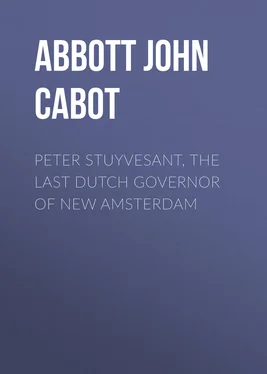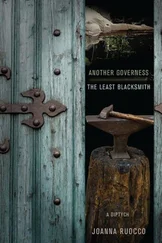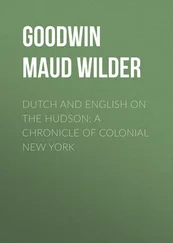John Abbott - Peter Stuyvesant, the Last Dutch Governor of New Amsterdam
Здесь есть возможность читать онлайн «John Abbott - Peter Stuyvesant, the Last Dutch Governor of New Amsterdam» — ознакомительный отрывок электронной книги совершенно бесплатно, а после прочтения отрывка купить полную версию. В некоторых случаях можно слушать аудио, скачать через торрент в формате fb2 и присутствует краткое содержание. Жанр: foreign_prose, История, foreign_edu, foreign_antique, на английском языке. Описание произведения, (предисловие) а так же отзывы посетителей доступны на портале библиотеки ЛибКат.
- Название:Peter Stuyvesant, the Last Dutch Governor of New Amsterdam
- Автор:
- Жанр:
- Год:неизвестен
- ISBN:нет данных
- Рейтинг книги:3 / 5. Голосов: 1
-
Избранное:Добавить в избранное
- Отзывы:
-
Ваша оценка:
- 60
- 1
- 2
- 3
- 4
- 5
Peter Stuyvesant, the Last Dutch Governor of New Amsterdam: краткое содержание, описание и аннотация
Предлагаем к чтению аннотацию, описание, краткое содержание или предисловие (зависит от того, что написал сам автор книги «Peter Stuyvesant, the Last Dutch Governor of New Amsterdam»). Если вы не нашли необходимую информацию о книге — напишите в комментариях, мы постараемся отыскать её.
Peter Stuyvesant, the Last Dutch Governor of New Amsterdam — читать онлайн ознакомительный отрывок
Ниже представлен текст книги, разбитый по страницам. Система сохранения места последней прочитанной страницы, позволяет с удобством читать онлайн бесплатно книгу «Peter Stuyvesant, the Last Dutch Governor of New Amsterdam», без необходимости каждый раз заново искать на чём Вы остановились. Поставьте закладку, и сможете в любой момент перейти на страницу, на которой закончили чтение.
Интервал:
Закладка:
Soon after this the Dutch Governor, Peter Minuit, sent secretary De Rassieres to Governor Bradford, with a very friendly letter, congratulating the Plymouth colony upon its prosperity, inviting to commercial relations, and offering to supply their English neighbors with any commodities which they might want.
Governor Bradford, in his reply, very cordially reciprocated these friendly greetings. Gracefully he alluded to the hospitality with which the exiled Pilgrims had been received in Holland. "Many of us," he wrote,
"are tied by the good and courteous entreaty which we have found in your country, having lived there many years with freedom and good content, as many of our friends do this day; for which we are bound to be thankful, and our children after us, and shall never forget the same."
At the same time he claimed that the territory, north of forty degrees of latitude, which included a large part of New Netherland, and all their Hudson river possessions, belonged to the English. Still he promised that, for the sake of good neighborhood, the English would not molest the Dutch at the mouth of the Hudson, if they would "forbear to trade with the natives in this bay and river of Narragansett and Sowames, which is, as it were, at our doors."
The authorities at Fort Amsterdam could not, for a moment, admit this claim of English supremacy over New Netherland. Director Minuit returned an answer, remarkable for its courteous tone, but in which he firmly maintained the right of the Dutch to trade with the Narragansetts as they had done for years, adding "As the English claim authority under the king of England, so we derive ours from the States of Holland, and we shall defend it."
Governor Bradford sent this correspondence to England. In an accompanying document he said,
"the Dutch, for strength of men and fortification, far exceed us in all this land. They have used trading here for six or seven and twenty years; but have begun to plant of later time; and now have reduced their trade to some order, and confined it only to their company, which, heretofore, was spoiled by their seamen and interlopers, as ours is, this year most notoriously. Besides spoiling our trade, the Dutch continue to sell muskets, powder and shot to the Indians, which will be the overthrow of all, if it be not looked into."
Director Minuit must have possessed some very noble traits of character. After waiting three months to receive a reply to his last communication, he sent another letter, reiterating the most friendly sentiments, and urging that an authorized agent should be sent from Plymouth to New Amsterdam, to confer "by word of mouth, touching our mutual commerce and trading." He stated, moreover, that if it were inconvenient for Governor Bradford to send such an agent, they would depute one to Plymouth themselves. In further token of kindness, he sent to the Plymouth Governor, "a rundlet of sugar and two Holland cheeses."
It is truly refreshing to witness the fraternal spirit manifested on this occasion. How many of the woes of this world might have been averted had the brotherhood of man been thus recognized by the leaders of the nations!
A messenger was sent to Plymouth. He was hospitably entertained, and returned to Fort Amsterdam with such testimonials of his reception as induced Director Minuit to send a formal ambassador to Plymouth, entrusted with plenipotentiary powers. Governor Bradford apologized for not sending an ambassador to Fort Amsterdam, stating, "one of our boats is abroad, and we have much business at home." Director Minuit selected Isaac De Rassieres, secretary of the province, "a man of fair and genteel behavior," as his ambassador. This movement was, to those infant colonies, an event of as much importance as any of the more stately embassies which have been interchanged between European courts.
The barque Nassau was fitted out, and manned with a small band of soldiers, and some trumpeters. It was the last of September, 1629, when earth and sky were bathed in all the glories of New England autumnal days. In De Rassieres' account of the excursion, he writes:
"Sailing through Hell-gate, and along the shores of Connecticut and Rhode Island, we arrived, early the next month, off Frenchman's Point, at a small river where those of New Plymouth have a house, made of hewn oak planks, called Aptuxet; where they keep two men, winter and summer, in order to maintain the trade and possession."
This Aptuxet was at the head of Buzzard's Bay, upon the site of the present village of Monumet, in the town of Sandwich. Near by there was a creek, penetrating the neck of Cape Cod, which approached another creek on the other side so near that, by a portage of but about five miles, goods could be transported across.
As the Nassau came in sight of this lonely trading port suddenly the peals of the Dutch trumpets awoke the echoes of the forest. It was the 4th of October. A letter was immediately dispatched by a fleet-footed Indian runner to Plymouth. A boat was promptly sent to the head of the creek, called Manoucusett, on the north side of the cape, and De Rassieres, with his companions, having threaded the Indian trail through the wilderness for five miles, was received on board the Pilgrims' boat and conveyed to Plymouth, "honorably attended with the noise of trumpeters." 2 2 Bradford in Prince, 248.
This meeting was a source of enjoyment to both parties. The two nations of England and Holland were in friendly alliance, and consequently this interview, in the solitudes of the New World, of the representatives of the two colonies, was mutually agreeable. The Pilgrims, having many of them for a long time resided in Holland, cherished memories of that country with feelings of strong affection and regarded the Hollanders almost as fellow-countrymen.
But again Governor Bradford asserted the right of the English to the country claimed by the Dutch, and even intimated that force might soon be employed to vindicate the British pretentions. We must admire the conduct of both parties in this emergency. The Dutch, instead of retaliating with threats and violence, sent a conciliatory memorial to Charles I., then King of England. And Charles, much to his credit, issued an order that all the English ports, whether in the kingdom or in the territories of the British king, should be thrown open to the Dutch vessels, trading to or from New Netherland.
The management of the affairs of the Dutch Colony was entrusted to a body of merchants called the West India Company. In the year 1629, this energetic company purchased of the Indians the exclusive title to a vast territory, extending north from Cape Henlopen, on the south side of Delaware Bay, two miles in breadth and running thirty-two miles inland.
The reader of the record of these days, often meets with the word Patroon , without perhaps having any very distinct idea of its significance. In order to encourage emigration and the establishment of colonies, the authorities in Holland issued a charter, conferring large extents of land and exclusive privileges, upon such members of the West India Company as might undertake to settle any colony in New Netherland.
"All such," it was proclaimed in this charter,
"shall be acknowledged Patroons of New Netherland, who shall, within the space of four years, undertake to plant a colony there of fifty souls upwards of fifteen years of age. The Patroons, by virtue of their power, shall be permitted, at such places as they shall settle their colonies, to extend their limits four miles 3 3 Dutch miles, equal to sixteen English miles.
along the shore, and so far into the country as the situation of the occupiers will admit."
The patroons, thus in possession of territory equal to many of the dukedoms and principalities of Europe, were invested with the authority which had been exercised in Europe by the old feudal lords. They could settle all disputes, in civil cases, between man and man. They could appoint local officers and magistrates, erect courts, and punish all crimes committed within their limits, being even authorized to inflict death upon the gallows. They could purchase any amount of unappropriated lands from the Indians.
Читать дальшеИнтервал:
Закладка:
Похожие книги на «Peter Stuyvesant, the Last Dutch Governor of New Amsterdam»
Представляем Вашему вниманию похожие книги на «Peter Stuyvesant, the Last Dutch Governor of New Amsterdam» списком для выбора. Мы отобрали схожую по названию и смыслу литературу в надежде предоставить читателям больше вариантов отыскать новые, интересные, ещё непрочитанные произведения.
Обсуждение, отзывы о книге «Peter Stuyvesant, the Last Dutch Governor of New Amsterdam» и просто собственные мнения читателей. Оставьте ваши комментарии, напишите, что Вы думаете о произведении, его смысле или главных героях. Укажите что конкретно понравилось, а что нет, и почему Вы так считаете.












